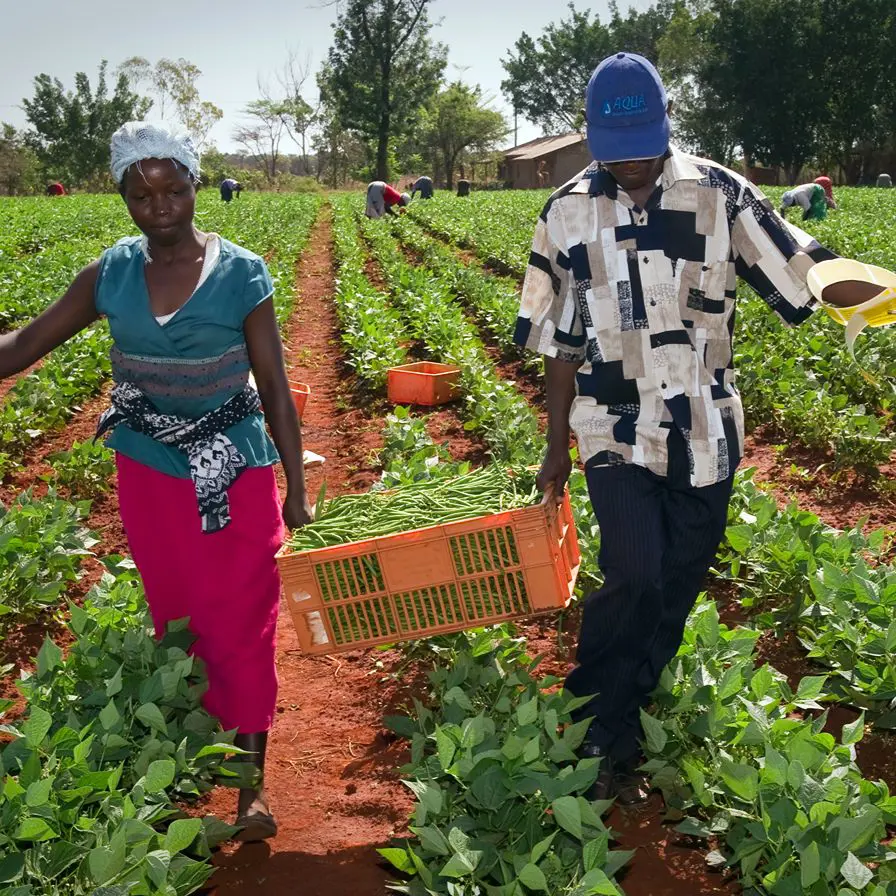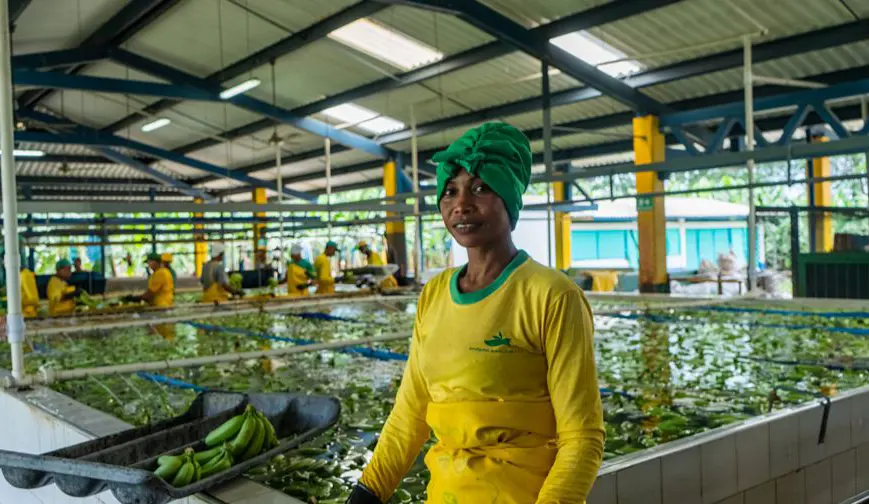We are committed to respecting human rights across our value chain to protect people from exploitation and exposure to unsafe working conditions - and ensure our businesses’ transition to net zero is just and equitable for the communities we source from.
We take our responsibility to respect and protect people’s human rights, wherever they are in our business and value chains, incredibly seriously. As a business that sources products from all over the world, that is not always easy. Some of our products come from regions where challenges such as poor employment practices and climate change impact communities in our supply chain. These are complex challenges that require cross-sector collaboration and targeted intervention, but they are challenges that we are deeply committed to addressing to make sure that everyone in our business and in our value chains is respected, protected and has the opportunity to thrive.
We have a long history of setting high standards in this space and working collaboratively with our suppliers to ensure that they are met. We have also worked to go above and beyond with our partners to deliver change. Our leading, 20-year partnership with Fairtrade exemplifies our long-standing commitment to this issue and has seen us work collaboratively to become the first UK retailer to take action to close the gap on living wages in the banana industry three years ahead of the industry target, and covert all of our own-brand black tea to the Fairtrade standard.
Our ambition
Our progress and highlights
‘Leading on human rights innovation’ status, achieving a top tier rating in CCLA’s Modern Slavery Benchmark in 2024
Fairtrade bananas and sugar in 2024 than any other grocery retailer for nine consecutive years
earned by Fairtrade producers since 2000 through sales of Fairtrade bananas at Sainsbury’s
Our areas of focus
Integrating human rights into purchasing practices
Setting minimum sourcing requirements and undertaking effective due diligence
Addressing issues through targeted action
Playing a leading role in collaboration across industry to drive change

Investing in wages for banana plantation workers
This year, we continued to collaborate with our partner Fairtrade, our banana supplier Fyffes and the Sustainable Trade Initiative (IDH) to improve workers' wages in our banana supply chains. Our action to commit to contributing to higher wages for banana plantation workers was made three years ahead of the industry’s commitment deadline of 2027. Sainsbury’s pays a premium above the cost of every box of bananas. It contributes to fairer wages that empower those who grow Fairtrade bananas to improve their livelihoods and financial security. The premium is also invested in sustainable farm practices. In addition, we have given suppliers added stability and financial security by moving to longer term contracts.

Working with Rights Lab on advocacy and a Just Transition
In 2023 we established a three-year strategic research partnership with the University of Nottingham’s Rights Lab, the world’s largest group of modern slavery researchers, to work collaboratively to understand and address the human rights risks in our supply chains.
Our strategic plan focused on eight areas, including our human rights advocacy approach. Led by the former UK Independent Anti-Slavery Commissioner Dame Sara Thornton, we developed our advocacy strategy, identifying a number of priority advocacy topics such as the development of the Fair Work Agency (FWA) and the effective evolution of the UK Seasonal Worker Scheme (SWS). Since crystallising our strategy, we have attended a number of parliamentary events and engaged with key stakeholders to support the call for improved regulation and enforcement.
Additionally, we are working with the Rights Lab to analyse the impact of climate change and nature loss on UK food retail supply chains. The research will also look at how retailers’ climate transition plans could affect supply chain workers’ human rights and will produce recommendations on how to address these risks, using Just Transition principles. The report will be available to the public to support knowledge-sharing and collaboration.



